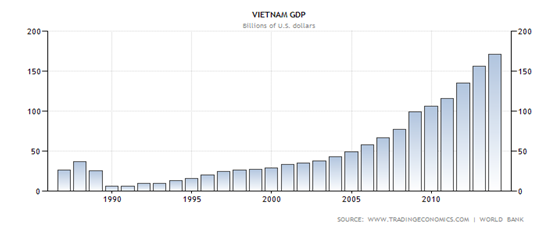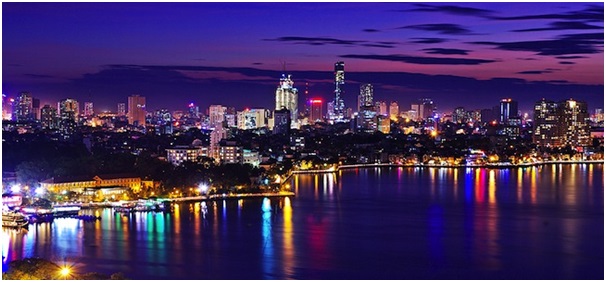Vietnam has been going through many changes over the past few decades since they adopted the “Doi Moi” (all round renovation) in 1986 which started reforms in the Vietnamese legislation and paved the way for Vietnam to open its doors to the world, subsequently propelling its GDP growth from one of the poorest countries in the world during the late eighties.
These reforms brought huge investments into the country that have seen much advancement in infrastructure as well as witnessing an average increase of over 5% in its GDP, year on year and which is expected to balloon as the country gears for further foreign investment.

As explained in my previous article (https://en.pmcweb.vn/vietnam-gearing-up-for-new-foreign-property-policies/), Vietnam is currently undergoing a major facelift with regards to its transport infrastructure as it gears towards the influx of wealth and investment into the country. As the Governments’ legislation reforms gain maturity, the international market will start taking more notice as the economy grows. Hanoi alone is forecast to increase its population by 25% within the next five years as locals and foreigners flock to the city for opportunities.
On the back of that, Vietnam will be passing new legislation from the 1st of July 2015 allowing foreign nationals to buy property in the country. The passing of the new Housing Law and Law on Real Estate Business is being regarded as a breakthrough that will establish a transparent legal framework required to meet the changing needs of the Vietnam real estate market.
So what does the new legislation encompass for foreigners looking to invest in property in Vietnam?
- Firstly, any foreigner that is granted entry into Vietnam, supposedly for more than three months, will now be eligible to buy property.
- There will no longer be restrictions on the type of property a foreigner can purchase including landed properties such as villas and townhouses. Before, they were restricted to only condominiums.
- There will no longer be a limit on the amount of dwellings owned by a foreigner. They will only be limited by the amount of units per condominium complex which will not be allowed to exceed 30% of the complex.
- Properties owned by foreigners will be allowed to be sub-leased, traded, inherited and collateralized.
- The tenure allowed to foreign individuals buying property will be a fifty-year leasehold with renewal possible after expiration.
- With the new law, Vietnamese nationals living outside the country will no longer be restricted from buying property.
A major component to the adjustment of reforms will involved the allowance of individuals and organizations to secure the property they occupy and use. Under State law, no foreigner can purchase land, as the land is seen as that of the people, which is managed by the state; however the land may be leased from the government.
The move by the government has been welcomed by all as it looks to stimulate the real estate market that has been going through tough times over the past few years that has seen the price of properties decrease. It could be seen as a buyers’ market as the current supply outweighs the demand, although prices in Hanoi compared to Ho Chi Minh City have remained stable.

These new laws will mark a strong step in gaining foreign investment in the Vietnam real estate market which is set to grow with the impending Free Trade Agreements with the EU, the signing of the TPP (Trans-Pacific Partnership) as well as being associated to the ASEAN and APEC associations. As foreign countries continue to look for potential investment in the world’s ever changing economic environment, Vietnam’s growth is going to come across as an attractive destination as the country starts becoming a major player in the Asian market.
By Robert






